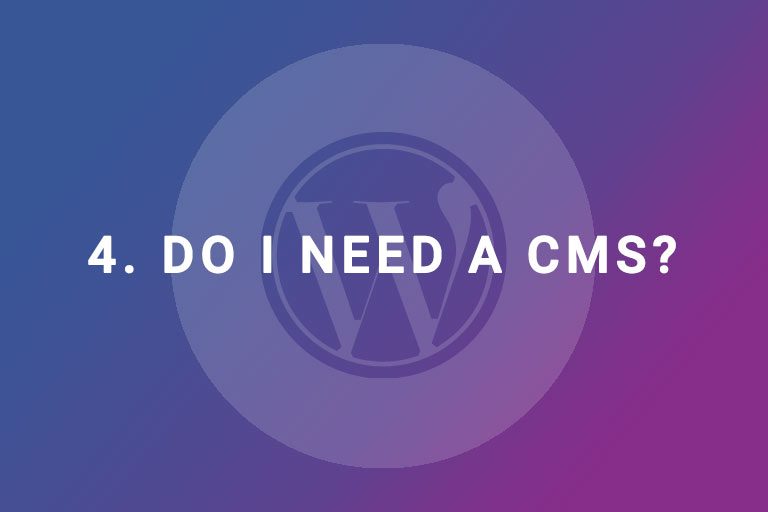Do I need a CMS and how to pick the right one
Last updated on
Most, but not all websites are built with a CMS. Read on to find out if you need a CMS and how to pick the right one.
What is a CMS?
A CMS or Content Management System is a software commonly used to build websites.
All CMS come with an easy-to-use admin interface where you can add and edit website content and products.
CMS also have hundreds of useful add-ons (often referred to as plugins or extensions) that allow you to add new functionality to your site such as social buttons, shopping cart, improve your SEO, speed up your site add a gallery etc.
When you need a CMS for your site
- You will have a large website with lots of pages
- You will regularly update to your content
- You will regularly add lots of new content
- You want to sell through your site
- You require lots of complicated functionality (CMS will have lots of ready-made plugins to accomplish this)
When you DON’T need a CMS for your site
- A highly customized or innovative website. In this case it is unlikely that any CMS will have the add-ons to fit your requirements, so you hire a development team to build a customized site or app.
- A customized single page application (SPA). The bulky code and functionality of a CMS would be largely unused, and you would still require lots of extra ad-hoc programming to get it to do what you want.
- A static website with few web pages. A web developer can quickly put together a suitable site. Using a CMS would be overkill.
Which CMS should I choose?
Your choice of CMS is largely determined by the type of website you require (eCommerce or standard website) and where you will target.
CMS for eCommerce
Magento
- Overview: the complete, powerful, robust software that offers endless possibilities.
- Ease-of-use: difficult.
- Set-up: challenging and expensive.
- Ideal for: larger projects with budget
Prestashop
- Overview: almost as complete and powerful as Magento.
- Ease-of-use: easy.
- Set-up: relatively straight forward. One-off fees for most plugins
- Ideal for: websites with a small-medium budget
Shopify
- Overview: slightly less powerful than Magento and Prestashop.
- Ease-of-use: easy. The back and front-end look great – which is driving Shopify’s popularity.
- Set-up: easy. Monthly or annual fees for lots of the addons.
- Shopify can be problematic if you have thousands of products or use drop shipping.
- Ideal for: simpler eCommerce stores or DIY business owners on a budget.
Woocommerce
- Overview: Woocommerce IS NOT a specialized eCommerce CMS, but a WordPress plugin. Consequently it lacks some of the advanced eCommerce features of Magento, Prestashop and Shopify. It plugs-in seamlessly to WordPress so you can easily add it to any WordPress site and take advantage of the powerful blogging capability of WordPress.
- Ease-of-use: very easy.
- Set-up: very easy.
- Ideal if you already have an existing WordPress site or require only a basic eCommerce. If you intend to blog often – Woo is a good choice.
CMS for standard websites
I would group standard website CMS into two categories:
- Do-it-yourself CMS such as WIX and Weebly. These are good for small personal websites and startups without budget as with relatively little experience you can build a great looking site.
- Professional CMS of which WordPress, Joomla and Drupal are the most popular. Having used all three, I recommend WordPress for its ease of use, reliability and popularity. Drupal is complicated to use, and Joomla is buggy and past its day.
Get an expert opinion
Choosing the right CMS will make your life soooooo much easier.
If you have any doubts, ask our experienced team to guide you to the right choices quickly and efficiently so you can get on with running your business.












